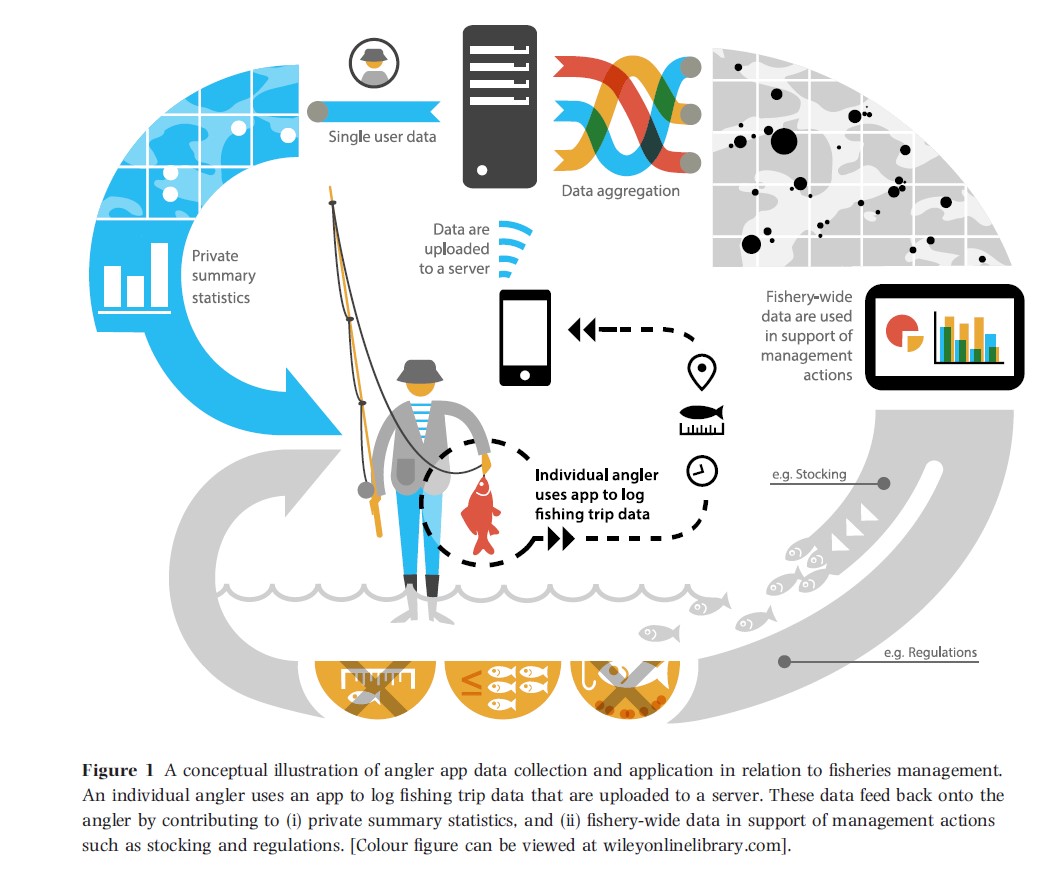This is a collaborative project between the University of Kent and the Centre for Environment, Fisheries & Aquaculture Science (Cefas)
Click here to submit your application by the 8th of January.
The project is at the intersection of big data, citizen-science, and sustainable fisheries. The student will provide new analytical tools for fisheries scientists to understand fish distributions, catches, effort, and angling behaviour through development of new statistical methods for the analysis of data collected by the smartphone-app Fishbrain, alongside information from current surveys.
The student will lead the development of state-of-the-art statistical methods on the timely topic of inference from large citizen-science data collected using new technologies. They will develop high-level, highly transferable statistical, programming and data skills, working with large app-derived data-sets and designed surveys using tools such as R, Python and Stan. The work will be presented and communicated to statisticians, fisheries-experts, and policy-makers at national and international conferences and meetings.
As a member of the Statistical Ecology @ Kent group and the National Centre for Statistical Ecology the student will be exposed to the latest developments in the fields of statistics and ecology. As part of the cohort of 80 Cefas PhD students they will interact with scientists and advisors from a diverse range of marine and freshwater sciences.
Through supervision and time visiting Cefas, the student will experience working in a multi-disciplinary science organisation and learn how their research fits into the wider policy context. Their work will be part of an MRF research programme at Cefas, Ball State and Danish Technical Universities, and broader fisheries advice through ICES.
The acquired knowledge and expertise in the topic of citizen-science data collected using new technologies will be of great benefit to the student in their future in academia, government, or industry. Although the models will be motivated by angling, the methods will be much more generally applicable to app-collected data on individual behaviour. The available data-sets are large and require efficient, sophisticated algorithms that fit models in reasonable time. Hence the project will equip the student with valuable skills in the growing areas of big data and data-mining.
Additional information on the project can be found here
ARIES is committed to equality & diversity, and inclusion of students of any and all backgrounds. All ARIES Universities have Athena Swan Bronze status as a minimum.
Students with high level numerical skills will be eligible for 3 months of additional stipend after the end of the 3.5 years to take advanced-level courses in branches of environmental sciences related to the project in the first 3-6 months of study.
Applicants should have a good degree in statistics, mathematics, computer science, or related subjects with a strong numerical component. They should be comfortable working with data and learning new methods, determined, and interested in engaging with the practical applications of their research.
Shortlisted applicants will be interviewed by ARIES on the 26th/27th February 2019, with shortlisting taking place at the University of Kent on the 31st of January.
Successful candidates who meet UKRI’s eligibility criteria will be awarded a NERC studentship – in 2018/19 the stipend is £14,777. In most cases, UK and EU nationals who have been resident in the UK for 3 years are eligible for a full award.
Supervisors
Dr Eleni Matechou and Dr Maria Kalli, University of Kent
David Maxwell and Dr Kieran Hyder, Centre for Environment, Fisheries & Aquaculture Science
Dr Christian Skov, National Institute of Aquatic Resources
Dr Paul Venturelli, Ball State University
The supervisory team brings together multidisciplinary expertise covering statistics, data science, recreational fisheries, app development, monitoring, and policy.
Funding Notes
The project has been shortlisted for up to 4 years, with 3.5 years minimum, of funding by the ARIES NERC Doctoral Training Partnership with a stipend of £14,777 per annum and a generous training and travel budget for attending UK-based and international conferences.

